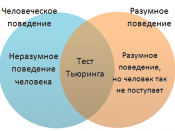Psychology is commonly defined as 'scientific' study of human behaviour and cognitive processes. Broadly speaking the discussion focuses on the different branches of psychology, and if they are indeed scientific. However, it is integral in this to debate to understand exactly the major features of a science, in order to judge if psychology is in fact one. There must be a definable subject matter - this changed from conscious human thought to human and non-human behaviour, then to cognitive processes within psychology's first eighty years as a separate discipline. Also, a theory construction is important. This represents an attempt to explain observed phenomena, such as Watson's attempt to account for human and non-human behaviour in terms of classical conditioning, and Skinner's subsequent attempt to do the same with operant conditioning. Any science must have hypotheses, and indeed test them. This involves making specific predictions about behaviour under certain specified conditions, for example, predicting that by combining the sight of a rat with the sound of an iron bar banging behind his head, a small child will learn to fear the rat, as is the case of Little Albert (1923).
Also, empirical methods are used in scientific fields to collect data, relevant to the hypothesis being tested, as is the case in many psychological experiments, such as the use of brain scanning in Dement and Kleitman's 1957 study.
Science is meant to be objective and unbiased. It should be free of values and discover the truths about what it is studying. Positivism is the view that science is objective and a study of what is real. For example, schizophrenia, when diagnosed as being caused due to excess dopamine, is being studied in a scientific manner. The explanation does not take into account any cultural customs or individual differences that might...



Content & Grammar
The thesis and content of this essay is very good. However, the grammar and sentence structure is hard to follow at times.
For example the following sentence: "Science is meant to be objective and unbiased. It should be free of values and discover the truths about what it is studying." What exactly is meant by free of values?
Another example is this sentence: "However, it is integral in this to debate to understand exactly the major features of a science, in order to judge if psychology is in fact one." Does this mean "...in this debate""...; in this to debate in order to understand"; and "... is, in fact, one." what?
0 out of 0 people found this comment useful.